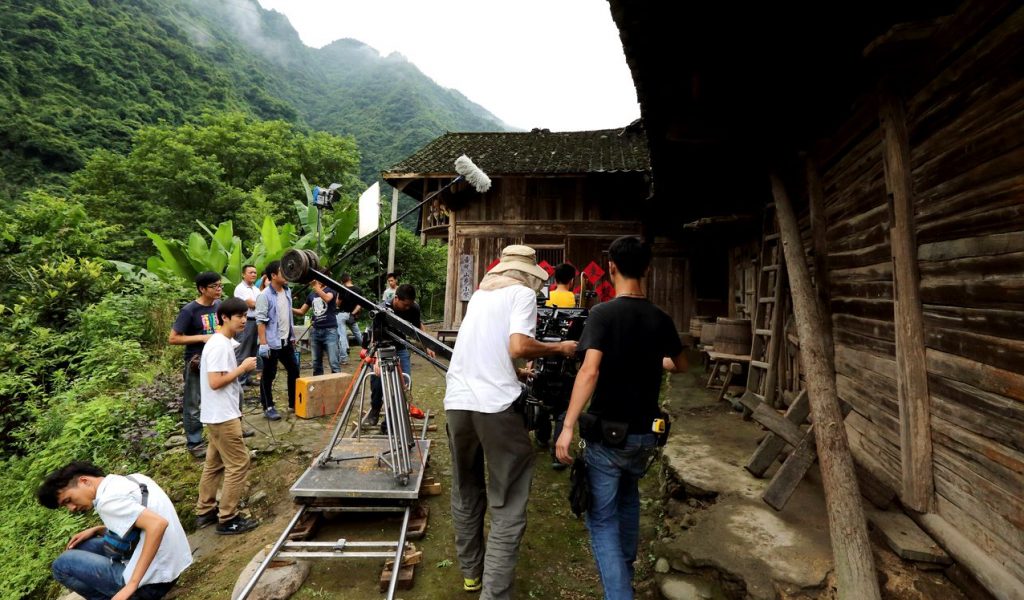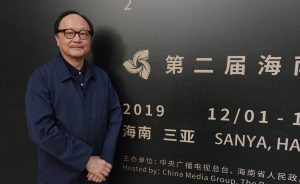CFI: Whose idea was it to found Bridging The Dragon, who started it and why?
We started the platform four years ago as a group of producers interested in further encouraging collaborations between Europe and China. At first, the upcoming new generation of Chinese investors were looking mostly at Hollywood as a successful model. But we felt that Europe, with its amazing film history and filmmaking expertise, has a lot to offer. And now that the Chinese market is evolving and Chinese film executives are diversifying their focuses, this has been proved to be right.
CFI: What kinds of opportunities are out there in China for European companies and filmmakers? Is there anything unique that Hollywood can’t offer?
I think what is great about China is that it is a blank blackboard. Nothing is for granted and, right now, there is more space for surprises than anywhere else. Of course, Hollywood’s blockbusters have a privileged space in the hearts and minds of Chinese moviegoers. But in the search for novelty, films from other parts of the world can create buzz and curiosity. The (unexpected) success of Indian movies might be just one example of that. Europe, with its amazing array of cultures, professional talents as well as funding support, can be a very promising partner.
CFI: What made you, personally, become interested in China? Have you lived in China? Do you speak Chinese?
I started studying Chinese as a high school student in the 80s when people used to make fun of me and ask me “Why are you learning Chinese? Who speaks Chinese in the world?” Then one of my films, Red Like the Sky, was imported into China and became one of the most appreciated films by Chinese film lovers (it has a rating of 8.9/10 on Chinese film review site Douban!). This was the beginning of my adventure. I was one of the founding members of BTD and later became the Managing Director.
CFI: Is Bridging The Dragon a member-based association? What does it take to become a member and what benefits does a member company enjoy?
BTD is a non-profit organization as well as a member-based association. The key to the platform is to have members that are film companies positioned in the market either due to their commercial success or for the quality of their movies. Unfortunately, the landscape in China for indie films is still very small, so independent EU companies or individual producers would probably have a hard time getting things done there. We hope things will develop in the future. But for the time being, it is not so great.
CFI: Give us a brief introduction to your major annual events.
Bridging The Dragon is an official partner of the Cannes and Berlin film markets and collaborates with several other film events in Europe and China. We organize panel discussions, workshops, company meetings and a yearly content lab, which has proved over the years to be a terrific incubator for co-production projects. But mostly, we consult and match-make our members and help them bridge the two film worlds. The most important feature of our association is that our members can benefit from a selected network of people, contacts and resources.
With its growing number of screens and moviegoers, China is more and more a content-hungry market. The film industry in China is still–relatively–young and needs more experienced talents from around the world. That’s why we have been constantly asked to suggest European technicians who could work on Chinese productions. Hence the idea of setting up a more organized offer, a real talent agency. We will promote a selected group of outstanding DOPs, editors, composers, production and costume designers, and artists who have made European movies great and now are available for and interested in Chinese films. We hope that this will help further bring together our film worlds.
Like every year we collaborate with the Marché and with French CNC (Centre national du cinéma) in helping connect Chinese and international production companies. The event will take place in the morning of the 11th in May. This year, we saw an increase in the number and quality of the applicants. In the end, we selected 26 international and 26 Chinese film companies. Among them, you can see several big Chinese studios, a sign that collaboration with the international market is becoming crucial even for bigger players. The event will be followed on the evening of the 12th by a matchmaking party hosted by the Dutch and Catalonian film commissions. They will announce an upcoming collaboration focusing on family entertainment. Special guest will be Oriol Pauolo, director of the Spanish thriller The Invisible Guest, which, with its $27 million box office in China, show’s that European films are becoming interesting for the Chinese public.
CFI: What has the association achieved so far? Has it successfully facilitated any co-productions/collaborations between China and Europe?
We follow our members and their projects very closely and support them in every possible way in order to move things along. I know, there is still a lot of skepticism on co-productions, simply because the case history is not large enough. Yet, I can tell you that a whole new slate of films is on its way. What amuses me is I know that this skepticism will (become) enthusiasm when the first breakthrough co-production film comes into being in the market.
CFI: You are a filmmaker yourself. Do you spend more time managing the association or making films? How do you balance these two roles?
The life of a filmmaker is busy. I am lucky enough to have built some very good teams that support me in different capacities. And a wealth of relationships generated by our network only affect my own projects in positive ways and reinforces my enthusiasm.
The biggest challenge of all is not – as people think – the language, the different working procedures, and bureaucracy, etc. I am sad to say that it relates more to our (Western) ignorance. We think that we have already learned everything and that the way we make movies is the only way of doing it. Hence most of us western producers don’t study, don’t spend enough time or have the modesty in trying to understand the other side. How can someone work with another world relying only on a two-week trip to Beijing and a few dinners at nice restaurants? What I find scary is that our Chinese colleagues know much more about us than we know about them! That’s obviously unbalanced. That’s why we always encourage a deeper immersion into the local industry, possibly by hiring specific professional figures within the company that would focus more continuously on this, provided that one really wants to work with China of course, and doesn’t only have a momentary infatuation. It will take some time but this direction will bring its results.









